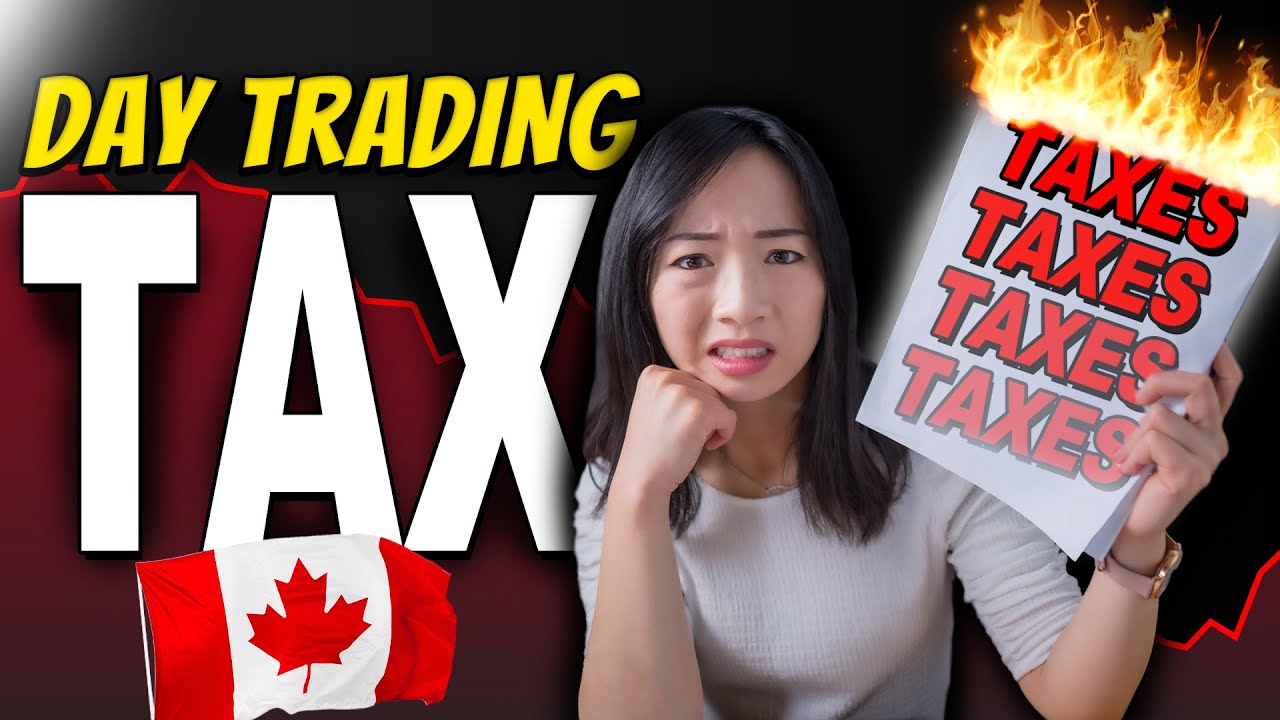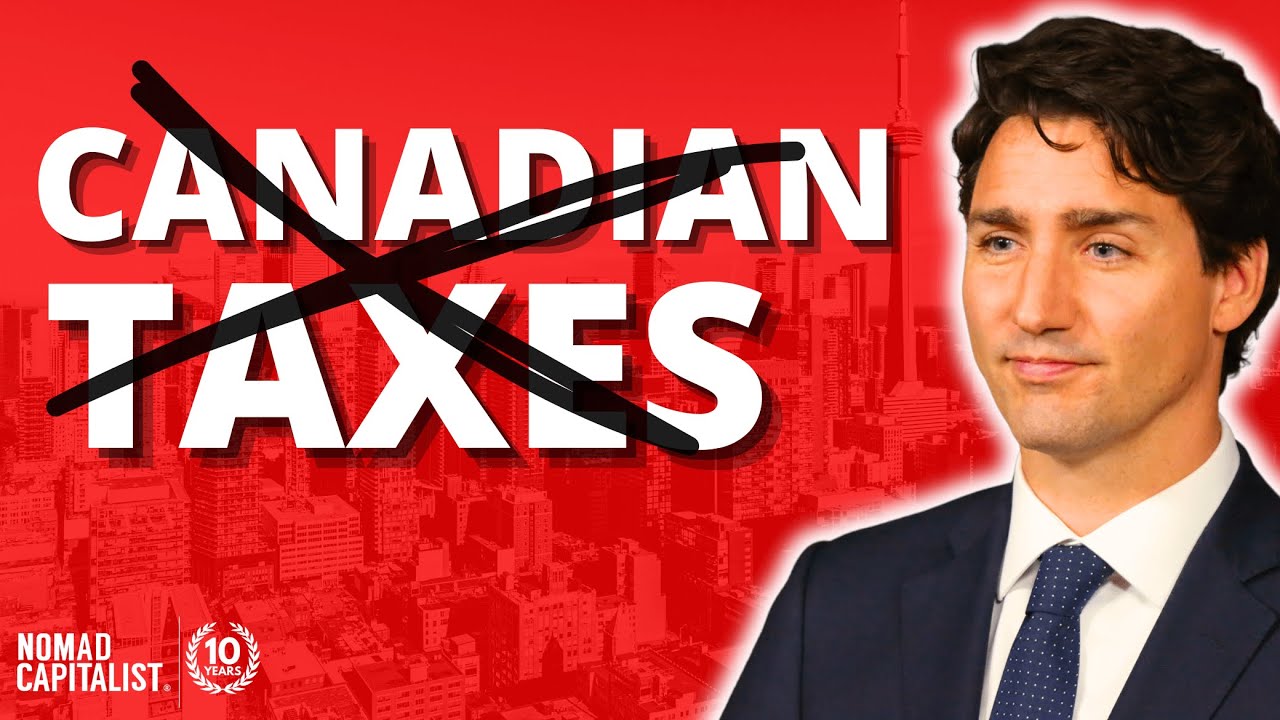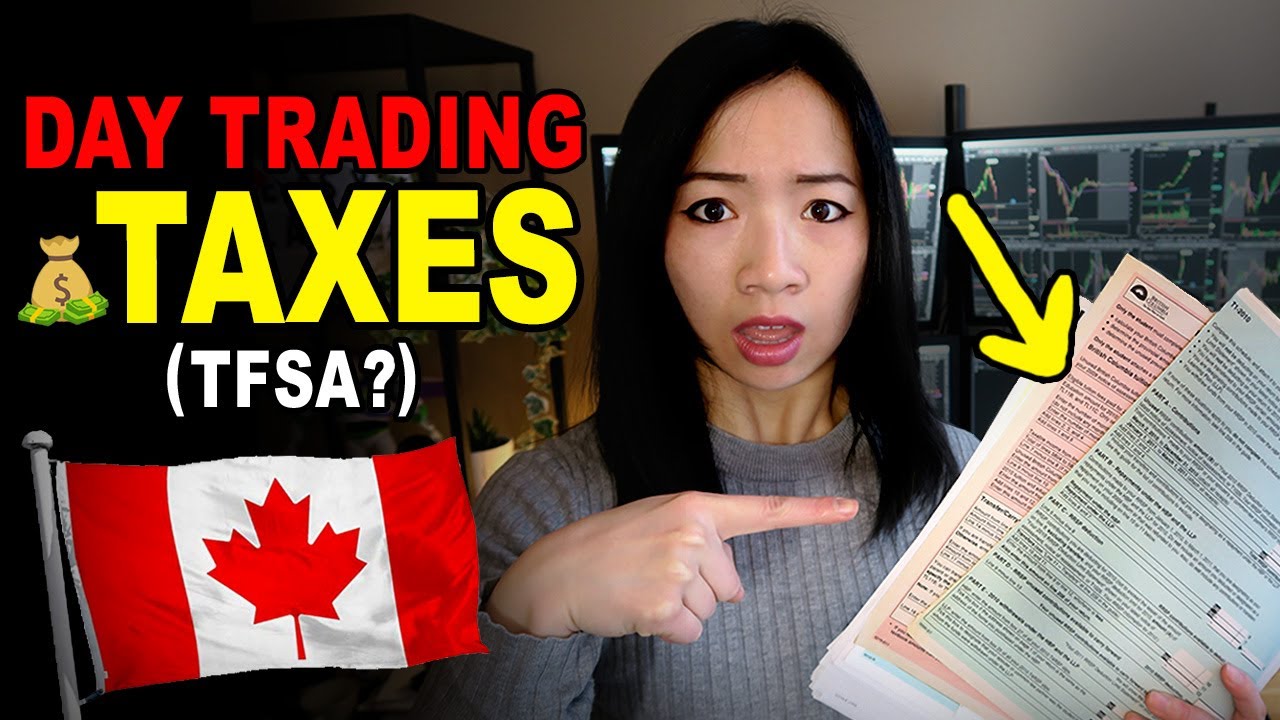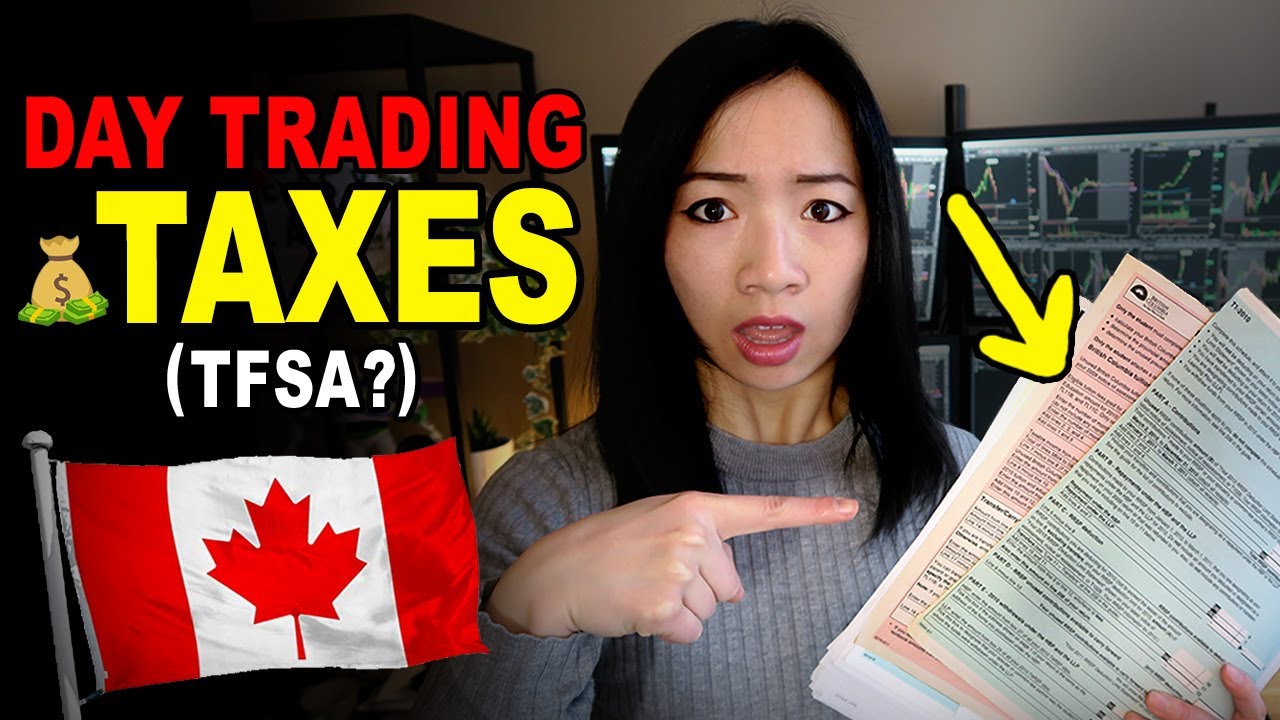Tax implications of forex trading in Canada for Questrade users: Prepare for a wild ride through the Canadian tax code, where even the most seasoned forex trader might need a compass and a sense of humor to navigate the twists and turns of capital gains, deductions, and currency conversions. Think of it as a thrilling treasure hunt, but instead of gold, you’re searching for the optimal way to minimize your tax burden.
Buckle up, Questrade users, it’s going to be a bumpy, yet potentially rewarding, journey!
This guide delves into the complexities of Canadian tax laws as they apply specifically to forex trading through Questrade. We’ll explore the various residency statuses and their impact on your tax obligations, decipher the mysteries of capital gains and losses, and illuminate the often-overlooked nuances of record-keeping and reporting. We’ll even tackle the thrilling world of margin accounts and the strategies that can either boost your profits or lead to a tax-induced headache.
Whether you’re a day trader, swing trader, or long-term investor, this guide provides a comprehensive overview to help you keep the CRA happy (and your wallet a little fuller).
Canadian Tax Residency and Forex Trading
Navigating the Canadian tax system can feel like trying to solve a Rubik’s Cube blindfolded, especially when forex trading enters the equation. But fear not, fellow Questrade users! Understanding your residency status is the first, crucial step to untangling this financial puzzle. Your residency status dictates how your forex trading profits (or, let’s be honest, sometimes losses) are taxed.Your tax obligations hinge entirely on whether the Canadian Revenue Agency (CRA) considers you a resident or a non-resident.
This isn’t just about where your passport says you’re from; it’s about a complex set of rules based on your physical presence, ties to Canada, and intentions. Let’s delve into the different categories.
Canadian Tax Residency Categories and Their Impact
The CRA uses a “substantial residential tie” test to determine residency. This means they look at a variety of factors, including the number of days you spend in Canada, your primary residence, your family ties, and your social and economic connections. It’s not a simple “yes” or “no” but a nuanced assessment. Being deemed a resident generally means you’ll be taxed on your worldwide income, including forex trading gains.
Non-residents, on the other hand, are typically only taxed on income sourced from Canada. The implications for Questrade users are significant.
Tax Implications for Questrade Users Based on Residency Status
For Questrade users, the residency status affects how you report your forex trading activities. As a resident, you’ll need to report all forex trading income and expenses on your tax return, using Schedule 3 (Capital Gains). This means meticulously tracking your trades, calculating capital gains, and potentially claiming capital losses to offset gains. Non-resident Questrade users, however, generally only need to report income earned from Canadian sources.
This simplifies the process considerably.
Examples Illustrating Residency Status Impact on Forex Reporting
Let’s paint a picture with some examples. Imagine two Questrade users: Anya, a Canadian resident, and Ben, a non-resident. Anya trades actively on Questrade, making $10,000 in profits from forex trading. She must report this full amount on her tax return, subject to capital gains tax. Ben, on the other hand, also uses Questrade, but only trades on currencies related to his home country.
He doesn’t have any Canadian-sourced forex income, meaning he wouldn’t report any forex income on his Canadian tax return.Now, let’s consider a twist. Anya incurs a $5,000 loss in a different year. She can use this loss to offset any capital gains she may have realized in that year or carry it forward to reduce taxes in future years.
This is where proper record-keeping becomes crucial for both resident and non-resident Questrade users. Accurate record-keeping is your best friend in the world of Canadian tax and forex trading.
Capital Gains and Losses in Forex Trading

So, you’ve been flitting around the forex market like a caffeinated hummingbird, buying and selling currencies faster than a politician changes their mind. Now, the thrilling ride is over, and it’s time to face the music – or rather, the Canadian Revenue Agency (CRA). Let’s untangle the tax implications of your forex forays with Questrade.Capital gains and losses from forex trading are calculated in Canada based on the difference between your proceeds of disposition (what you sold your currency for) and your adjusted cost base (ACB) – essentially, what you originally paid.
Think of it as a financial game of “Spot the Difference,” except the stakes are a bit higher than a free coffee.
Determining the Cost Base of Foreign Currencies
Calculating your ACB for foreign currencies isn’t as straightforward as counting your loonies and toonies. The CRA considers the ACB to be the amount of Canadian dollars you spent to acquire the foreign currency, including any commissions or fees charged by Questrade. This means meticulously keeping records of every transaction is crucial. Failing to do so is like trying to find a specific sock in a dryer full of mismatched laundry – a frustrating and potentially costly endeavour.
Wrestling with the Canadian tax man after a forex foray on Questrade? Yeah, that’s a whole other beast. But before you get too bogged down in capital gains calculations, consider this: picking the right charting tools is crucial for success, so check out this helpful resource: Which app offers the best charting tools for day trading?
Knowing where to find the best charts can help you make better trading decisions, which in turn, will make those tax implications a little less… terrifying. Back to those Questrade tax forms though – good luck!
For multiple purchases of the same currency, you’ll need to determine the ACB of each lot sold, and this is where accounting methods come into play.
Accounting Methods and Their Impact on Capital Gains
The choice of accounting method (like FIFO – First-In, First-Out, or LIFO – Last-In, First-Out) affects how you match your purchases to your sales. Let’s say you bought 100 USD at $1.30 CAD and later 100 USD at $1.40 CAD. If you sell 100 USD when the exchange rate is $1.50 CAD, using FIFO, your cost base would be $130 CAD (100 USD x $1.30 CAD), resulting in a gain of $20 CAD.
Using LIFO, your cost base would be $140 CAD (100 USD x $1.40 CAD), resulting in a gain of $10 CAD. The difference might seem small in this example, but it can significantly impact your tax liability over many trades. For Questrade forex accounts, the default method is usually FIFO, but it’s essential to confirm this with Questrade and understand the implications.
Tax Treatment of Short-Term and Long-Term Capital Gains
The holding period of your forex trades determines whether your gains are considered short-term or long-term. This impacts the tax rate applied. In Canada, short-term capital gains are taxed at your marginal tax rate, while long-term capital gains are taxed at half your marginal tax rate. This is a significant difference that could mean the difference between a relaxing vacation and… well, not a relaxing vacation.
| Category | Holding Period | Tax Rate | Example (assuming a 30% marginal tax rate) |
|---|---|---|---|
| Short-Term Capital Gain | Less than one year | Your marginal tax rate | $1000 gain taxed at 30% = $300 tax |
| Long-Term Capital Gain | One year or more | 50% of your marginal tax rate | $1000 gain taxed at 15% (50% of 30%) = $150 tax |
Record Keeping and Reporting Requirements
Navigating the Canadian tax system as a Questrade forex trader can feel like navigating a particularly treacherous maze – but fear not! With meticulous record-keeping, you can transform this potential headache into a manageable (and even slightly less painful) experience. Proper documentation isn’t just about avoiding the taxman’s wrath; it’s about ensuring you claim all the deductions you’re entitled to.Proper record keeping for your Questrade forex trading activities is crucial for accurate tax reporting.
Failing to do so can lead to penalties, interest charges, and even audits. Think of it as building a strong defense against the dreaded tax-auditor kraken!
Necessary Documentation for Questrade Forex Traders
Maintaining detailed records of all your forex transactions is paramount. This includes trade confirmations, account statements, and any supporting documentation related to expenses incurred. Questrade provides electronic statements; downloading and organizing these is the first step. Beyond the statements, keep records of any fees paid (trading fees, conversion fees, etc.), and any expenses directly related to your trading activities (like subscriptions to financial news services – think of it as professional development for your inner day trader!).
Consider using a spreadsheet or dedicated accounting software to track everything systematically. Imagine it as your personal forex trading ledger, a detailed chronicle of your financial victories and (let’s be honest) occasional defeats.
Information Required on Tax Returns
When filing your Canadian tax return, you’ll need to report all your forex trading income and expenses. This involves specifying the total capital gains (profits) and losses from your forex trades. Remember, only 50% of your capital gains are taxable in Canada. The CRA (Canada Revenue Agency) expects you to provide precise details of your transactions, including dates, currencies traded, amounts, and any associated fees.
Failure to provide this information accurately and completely can result in delays, assessments, and additional paperwork. It’s like a choose-your-own-adventure story, but one where choosing the wrong path leads to a tax audit.
Penalties for Inaccurate or Incomplete Reporting
The CRA takes accurate tax reporting very seriously. Inaccurate or incomplete reporting of forex trading income can result in penalties, ranging from interest charges on unpaid taxes to significant fines. The severity of the penalty depends on the nature and extent of the inaccuracy, and whether it was intentional or due to negligence. Think of it as a financial penalty for playing fast and loose with the tax laws; it’s not a game you want to lose.
In extreme cases, criminal charges can even be laid. Let’s just say you don’t want to end up on the wrong side of the CRA’s ledger.
Sample Record-Keeping System for Questrade Forex Traders
A well-organized system is your best friend. Consider using a spreadsheet to track each trade. Include columns for: Date, Currency Pair (e.g., USD/CAD), Buy/Sell, Quantity, Entry Price, Exit Price, Fees, Profit/Loss, and any relevant notes. Download your Questrade statements regularly and reconcile them with your spreadsheet. This provides a double-check and helps prevent errors.
Regularly back up your records! Think of it as an insurance policy against data loss, ensuring you’re prepared for any audit. A well-maintained spreadsheet will help you quickly gather the necessary information for your tax return, transforming a potentially stressful task into a much more manageable one.
Wrestling with the Canadian taxman after a forex frenzy on Questrade? Yeah, that’s a whole other ball game. Before you lose your shirt (again!), maybe finding an app with stellar customer support could help prevent future headaches; check out this helpful guide: Which app offers the best customer support for day trading? Then, armed with better support, you can confidently tackle those Questrade forex tax implications.
Because let’s face it, navigating those rules is about as fun as a root canal.
Tax Deductions and Expenses Related to Forex Trading
So, you’ve conquered the wild world of forex trading on Questrade, and now it’s time to face the slightly less thrilling, but equally important, world of Canadian taxes. Don’t worry, it’s not as scary as a sudden market crash. We’re here to navigate the murky waters of allowable deductions, turning those pesky expenses into potential tax savings. Remember, always consult a tax professional for personalized advice, as the tax landscape can be as unpredictable as the forex market itself.While the thrill of a winning trade is undeniable, remember that certain expenses incurred while building your forex empire can be deducted from your taxable income.
This means less money going to the taxman and more for… well, more forex trading, perhaps? Let’s explore the delightful world of deductible forex expenses.
Software and Subscription Costs, Tax implications of forex trading in Canada for Questrade users
Many forex traders rely on sophisticated software for charting, analysis, and automated trading. These subscriptions, whether for MetaTrader, TradingView, or other platforms, can often be claimed as business expenses. Think of it as investing in your professional development, but instead of a stuffy seminar, you get real-time market data and snazzy charts. The cost of these subscriptions is generally deductible, providing you maintain proper records, of course.
Imagine the satisfaction of deducting that pricey software subscription – it’s almost as good as a winning trade!
Navigating the tax labyrinth of forex trading in Canada as a Questrade user can feel like trying to herd cats in a hurricane, but don’t despair! Understanding your capital gains and losses is crucial, and choosing the right tools is half the battle. For a smoother ride, check out these Day trading app recommendations with educational resources.
to help you stay organized and informed. Then, armed with knowledge and the right apps, you can tackle those Questrade forex tax returns with the confidence of a seasoned tax ninja.
Educational Materials and Courses
Continuous learning is crucial in the ever-evolving forex market. The cost of books, online courses, webinars, or seminars specifically related to forex trading techniques, strategies, or market analysis can be deducted. This includes materials focused on improving your trading skills, risk management, or understanding economic indicators. Consider it tuition for your personal forex university – a worthwhile investment that could reduce your tax burden.
Think of all the extra pips you could trade with those savings!
Home Office Expenses
If you dedicate a specific area of your home exclusively to your forex trading activities, you may be able to deduct a portion of your home-related expenses. This includes a percentage of your mortgage interest, property taxes, utilities, and home insurance. However, the CRA has specific rules for determining the eligible portion of these expenses, so careful record-keeping is essential.
Imagine working from home, sipping your coffee, and knowing your home office is contributing to lower taxes – the ultimate work-from-home perk!
Other Deductible Expenses
Beyond the main categories, other expenses might qualify for deduction, depending on their direct relationship to your forex trading activities. This could include things like internet access fees (if used predominantly for trading), professional financial advice specifically related to your forex trading, and even the cost of professional accounting services to help you navigate your forex tax obligations (a bit meta, we know!).
Navigating the Canadian tax maze for Questrade forex trading profits can feel like a wild goose chase, especially when you compare it to the (relatively) simpler tax implications of, say, making a killing on crypto – check out profit from cryptocoin to see what I mean! But seriously, folks, understanding those Questrade forex tax rules is crucial to avoid a CRA audit; otherwise, you might find yourself wishing you’d stuck to simpler investments.
It’s always wise to keep meticulous records of all expenses, no matter how small, as they may add up to significant tax savings. Think of it as finding hidden treasure in your expense reports!
Currency Conversion and Reporting: Tax Implications Of Forex Trading In Canada For Questrade Users

Navigating the wild world of forex trading in Canada and then wrestling with the tax implications? Don’t worry, we’ve got you covered. Converting your foreign currency transactions into Canadian dollars for tax purposes might sound like a trip to the accountant’s version of Mordor, but with the right approach, it’s more like a pleasant stroll through a tax-efficient meadow.
Let’s break down the process.Converting your forex trading gains and losses into Canadian dollars for tax purposes requires careful attention to detail, but fear not! It’s all about accurately reflecting your profits and losses in Canadian currency, ensuring you’re paying the right amount of tax – not a penny more, not a penny less (unless you’re feeling particularly generous to the government).
Navigating the Canadian tax landscape for Questrade forex traders can feel like a wild goose chase, especially when those capital gains start piling up. But before you lose your shirt (or your profits!), remember to meticulously track your trades. To help manage those low-commission trades, check out this resource on finding the Best day trading app for Canadians with low commission fees.
Then, armed with this knowledge and a well-organized spreadsheet, you can face the CRA with confidence (and maybe even a little smugness).
Exchange Rate Determination
Determining the correct exchange rate is crucial. You’ll need the exchange rate on the day you either bought or sold the currency, depending on whether you’re calculating a gain or loss. Using the wrong rate could lead to a tax headache (and who needs that?). You can find reliable exchange rates from various sources, such as the Bank of Canada’s website or major financial institutions.
Using the average rate for the month is generally not acceptable for precise tax calculations. For example, if you sold USD on March 15th, you need the USD/CAD exchange rate specifically for that date. Using the average rate for March could lead to inaccuracies.
Reporting Currency Conversion Gains and Losses
Currency conversion gains and losses are considered capital gains or losses in Canada. This means they’re reported on Schedule 3 of your tax return (T1 General). Remember, only thenet* gain or loss after accounting for all transactions in a specific currency is reported. So, if you had multiple transactions in USD throughout the year, you’ll need to calculate the overall net gain or loss in USD before converting that net figure to CAD using the year-end exchange rate.
This simplifies the reporting process and prevents needless complexity.
Step-by-Step Guide to Converting Forex Trading Records
Let’s say you’re a Questrade user and you’ve been trading EUR/CAD pairs. Here’s a step-by-step guide to help you convert your records:
1. Gather your Questrade statements
Download all your relevant Questrade statements detailing your forex trades for the tax year. These statements will typically provide the date, the amount traded in the foreign currency, and the exchange rate at the time of the transaction.
2. Organize your transactions
Create a spreadsheet. List each transaction, including the date, the currency pair traded (e.g., EUR/CAD), the amount traded in the foreign currency, the exchange rate on that date, and the equivalent amount in Canadian dollars.
3. Calculate gains and losses in the foreign currency
For each transaction, determine whether it resulted in a gain or loss in the foreign currency.
Wrestling with the Canadian taxman after a forex frenzy on Questrade? Yeah, that’s a whole other beast. But if you’re looking to diversify your portfolio, maybe consider options trading – check out this handy comparison of the best day trading apps for options trading: Compare the best day trading apps for options trading. Then, armed with that knowledge, you can strategize how to minimize your tax burden on those forex profits – because let’s face it, Uncle Sam (or rather, the CRA) always wants a piece of the pie.
4. Convert gains and losses to Canadian dollars
Use the exchange rate from the date of the transaction to convert each gain or loss into Canadian dollars.
5. Calculate the net gain or loss in Canadian dollars
Sum up all your gains and losses in Canadian dollars to determine your net capital gain or loss from forex trading for the tax year.
6. Report on Schedule 3
Report the net capital gain or loss on Schedule 3 of your T1 General income tax return.
Remember to keep meticulous records. The CRA expects accurate and detailed documentation.
Tax Implications of Different Forex Trading Strategies

Navigating the Canadian tax system as a Questrade forex trader can feel like trying to decipher ancient hieroglyphs – especially when different trading strategies throw their own unique tax wrinkles into the mix. Let’s untangle this Gordian knot of tax implications, separating fact from fiction and ensuring your tax filings are as smooth as a perfectly executed pip.The frequency of your trades, the length of your positions, and your overall trading style significantly impact how the Canada Revenue Agency (CRA) views your forex activities.
Essentially, the CRA wants to know if you’re a casual investor dabbling in the markets or a full-fledged, high-frequency trader. This distinction dramatically affects how your profits and losses are categorized and taxed.
Day Trading Tax Implications
Day trading, characterized by opening and closing positions within the same day, often results in your forex profits being taxed as business income. This means they’re subject to your marginal tax rate, potentially a higher rate than capital gains taxes. The CRA may scrutinize your trading activity to determine if it meets the criteria of a business. Factors like the frequency of trades, the level of organization, and the time commitment involved are all considered.
Imagine trying to claim a hobby loss from knitting sweaters if you’re selling hundreds each week – it just wouldn’t fly. Similarly, claiming day trading losses as capital losses when your activity resembles a business is unlikely to be successful. Meticulous record-keeping is crucial for day traders to substantiate their business status and claim legitimate business expenses.
Swing Trading Tax Implications
Swing trading, where positions are held for a few days or weeks, generally results in capital gains or losses. This is usually a more favorable tax treatment than business income, as capital gains are taxed at a lower rate (50% of the gain is included in your taxable income). However, the line between swing trading and day trading can blur, particularly for frequent, short-term swing trades.
The CRA will examine the frequency and duration of your trades to determine the appropriate tax treatment. Think of it like this: a few well-placed swings on the golf course are fine, but if you’re swinging constantly, the CRA might suspect you’re trying to run a driving range.
Long-Term Forex Investing Tax Implications
Holding forex positions for longer periods, akin to long-term investing in stocks, also typically results in capital gains or losses. This is generally the most tax-advantageous approach, especially if you’re aiming for long-term growth. However, even long-term forex investors need to carefully track their transactions to accurately report their gains and losses. It’s not about getting lucky with one big win; it’s about building a steady, long-term strategy that also makes sense from a tax perspective.
Impact of Trade Frequency on Tax Treatment
The frequency of your forex trades directly influences your tax liability. More frequent trading increases the likelihood of your profits being classified as business income, while less frequent trading generally results in capital gains treatment. The CRA uses various factors to assess your trading activity, including the number of trades, the duration of positions, and the overall level of organization and planning.
It’s a balancing act – more frequent trades might lead to greater profits, but also to a higher tax rate. Conversely, fewer trades might yield slower growth but could also offer lower tax liabilities. Consider the time commitment and tax implications carefully when crafting your forex strategy.
Tax Considerations for Questrade Users
Questrade, like other brokerage firms, provides tax slips (T5008) summarizing your capital gains and losses. However, it’s crucial to remember that Questrade’s reporting is just one piece of the puzzle. You are ultimately responsible for ensuring the accuracy of your tax filings. Ensure you meticulously maintain your own records, including trade confirmations, account statements, and any supporting documentation for expenses.
Questrade’s platform may offer features to help with record-keeping, but it’s always best to have your own independent system. Think of it like this: Questrade provides a blueprint, but you need to build the house yourself. Double-checking everything is key to avoiding any unpleasant surprises come tax time.
Tax Implications of Using Margin Accounts

Leveraging your forex trading with a margin account through Questrade can significantly amplify both profits and losses. This means the tax implications become considerably more complex, requiring careful consideration. Understanding how interest, margin calls, and potential losses are treated is crucial for accurate tax reporting and minimizing your tax burden.Interest paid on margin loans is generally considered a deductible expense for tax purposes in Canada.
However, it’s crucial to understand that this deduction is only allowed againstinvestment income*, not against your regular employment income. This means that the interest expense reduces the amount of taxable capital gains you have from your forex trading activities. It doesn’t offer a blanket reduction on your overall income.
Interest Paid on Margin Loans
Interest paid on your Questrade margin account is deductible against your forex trading profits. Think of it as a business expense for your “forex business.” You’ll need to keep meticulous records of all interest payments throughout the year. These records should include the date of payment, the amount paid, and a clear indication that the interest relates specifically to your margin account for forex trading.
Remember, only the interest paid on the portion of the loan used for forex trading is deductible. If you used part of the loan for other purposes, you’ll need to appropriately allocate the interest expense. For example, if you used 75% of your margin loan for forex and 25% for other investments, only 75% of the total interest paid is deductible against your forex trading income.
Margin Calls and Losses
Margin calls, those unwelcome phone calls reminding you that your account balance has fallen below the required margin level, can be financially stressful. From a tax perspective, they highlight potential losses. Losses incurred due to margin calls are treated as capital losses. These losses can be used to offset capital gains from other investments, including other forex trades.
However, there are limitations. Capital losses can only offset capital gains, and any excess losses can be carried forward to reduce future capital gains in subsequent years. It’s important to accurately report both your capital gains and capital losses on your tax return. Failing to do so could lead to penalties and interest charges from the Canada Revenue Agency (CRA).
Let’s say you experienced a $5,000 capital loss due to a margin call. This loss can be used to reduce your capital gains, effectively lowering your tax bill. If you had $3,000 in capital gains, the remaining $2,000 loss can be carried forward to future years.
Seeking Professional Tax Advice
Navigating the Canadian tax system, especially when it comes to the complexities of forex trading, can feel like trying to decipher a hieroglyphic inscription while juggling flaming torches. While we’ve covered the basics, remember that this information is for general guidance only and shouldn’t replace personalized advice. Seeking professional help is not just a good idea; it’s often a necessity.The intricacies of forex trading, combined with Canada’s tax regulations, create a landscape ripe for unintended consequences.
A qualified tax professional can provide tailored guidance, ensuring you comply with all relevant laws and optimize your tax situation. Think of them as your financial Sherpas, guiding you safely through the treacherous peaks and valleys of tax season.
Situations Requiring Professional Tax Advice
There are several scenarios where professional tax advice becomes particularly crucial for Questrade forex traders. Ignoring these situations could lead to costly mistakes and unnecessary headaches.A qualified tax professional can help you navigate these complex areas, ensuring you are compliant with Canadian tax laws and potentially saving you significant money. They can also offer strategies for minimizing your tax burden while remaining within the boundaries of legal compliance.
Examples of Situations Requiring Professional Tax Advice
Let’s illustrate with some real-world examples. Imagine a Questrade trader who utilizes sophisticated trading strategies involving complex derivatives or options. Understanding the tax implications of these instruments requires specialized knowledge, often beyond the scope of general tax information. A professional can analyze the trader’s specific strategies and provide advice on proper reporting and potential tax optimization.Another example is a trader who operates a significant portion of their forex trading from outside Canada, raising questions about their tax residency status.
Determining residency status correctly is paramount for accurate tax reporting and can significantly impact your overall tax liability. A tax professional can assess the individual’s circumstances and provide clarity on their residency status and its implications.Finally, consider a trader who experiences substantial losses in a given year. Understanding how to claim these losses correctly, potentially carrying them forward to offset future gains, requires careful planning and accurate record-keeping.
A tax professional can guide the trader through the process of claiming losses and ensuring they maximize any potential tax benefits. They can also help navigate the complexities of claiming losses against other sources of income.
Last Recap
So, there you have it – a whirlwind tour of the Canadian tax landscape as it pertains to your Questrade forex trading adventures. While navigating these tax waters can feel like trying to catch a greased pig, remember that proper planning and record-keeping are your secret weapons. Understanding the rules, even with their quirky nuances, can transform a potentially stressful experience into a manageable one.
And if you’re still feeling overwhelmed, remember that seeking professional advice is always a smart move – it’s better to have a tax expert on your team than to face the CRA’s wrath alone! Happy trading (and happy filing!).
